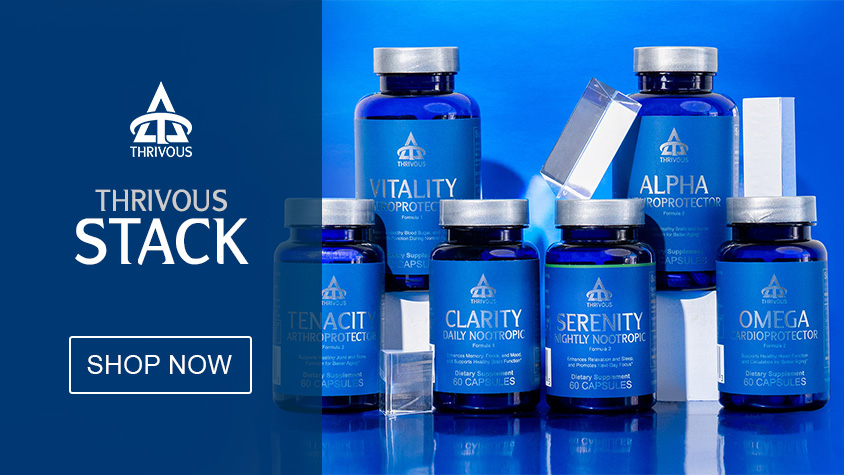Advancing Biological Age Testing with LinAge

In recent developments in human enhancement, a groundbreaking study titled "Principal component-based clinical aging clocks identify signatures of healthy aging and targets for clinical intervention" has captured the attention of researchers and enthusiasts alike. This study focuses on using complex data analysis to better understand biological aging and how it differs from chronological age. Biological age is considered a key indicator of health and longevity, as it reflects the body's condition rather than just years lived.
The study pioneers methods to construct a "clinical aging clock" called PCAge, which uses principal component analysis to assess an individual's biological age. It explores how different clinical indicators can predict aging trajectories, aiming to identify healthy aging signatures. The potential to pinpoint specific biological processes involved in aging opens new avenues for enhancing health through targeted interventions.
Furthermore, this research introduces a streamlined version, LinAge, based on fewer clinical parameters while maintaining predictive accuracy. The goal is to make this advanced aging assessment accessible for regular clinical use. Such tools could revolutionize how we approach health maintenance by focusing on personalized prevention strategies and promoting longevity.
Study Design
The study utilized data from the National Health and Nutrition Examination Survey (NHANES), analyzing clinical parameters from over 3,700 participants aged 40 to 84. Researchers employed principal component analysis to reduce the dimensionality of the data, retaining aspects that explained 99% of the overall variance. This analysis was foundational for constructing the PCAge clinical aging clock, which was specifically tailored for each gender.
Participants were divided into training and testing groups to refine and validate the biological age predictions made by PCAge. The study used health-related questionnaires alongside standard clinical measures to enhance the richness of the data. Clinical features were transformed into principal components, which were then incorporated into models to predict mortality risks.
The introduction of the streamlined LinAge involved selecting a subset of parameters common to most clinical practices, thus facilitating broader application. This version was rigorously tested across different datasets to ensure robustness and reliability of the predictions about biological versus chronological age.
Study Results
Findings revealed that PCAge effectively captures a person’s biological age, showing a strong correlation with chronological age but with significant variances reflective of unique aging trajectories. Participants rated biologically younger than their chronological age displayed longer telomeres, better cognitive performance, and higher physical function levels. These aspects are associated with more successful aging.
PCAge demonstrated superior accuracy in predicting longevity compared to traditional clinical risk markers, isolating groups with particularly successful or poor aging patterns. It was notably more precise in accounting for variables like heart health and cognitive abilities, pinpointing preventative measures to maintain youthful biological function.
The study's streamlined LinAge version upheld its ability to predict mortality over 20 years, making it a practical tool for clinical settings. It outperformed existing models in anticipating age-related health risks, demonstrating its utility in guiding personalized health interventions focused on extending healthy lifespan.
Recommendation
This study's implications for healthy individuals are profound and promising, suggesting that monitoring biological age can inform strategies to enhance vitality. By tracking aging beyond chronological markers, individuals can receive tailored recommendations to sustain optimal health. This approach can potentially delay the physiological decline commonly associated with getting older.
For those seeking to amplify their healthspan, adopting preventative measures aligned with findings from this study, such as improvements in lifestyle or targeted supplementation, could be beneficial. Health professionals could employ these insights to offer personalized health plans that focus on maintaining or even reversing biological aging.
Ultimately, integrating such advanced aging clocks into regular health check-ups could transform public health strategies, emphasizing the importance of early intervention. By encouraging practices that align with staying biologically younger, the focus shifts from merely treating conditions to promoting proactive health management, paving the way for a vibrant, extended lifespan.
Thrivous develops Thrivous Clock to measure biological age. It's the most cost-effective biological aging test available on the market. Take the test periodically to see how lifestyle interventions, such as Thrivous Stack, can improve your biological age compared to chronological age over time. Thrivous Clock and Thrivous Stack are available to purchase online now in the Thrivous store.
More Articles
Don't miss a beat! In our Pulse Newsletter, Thrivous curates the most important news on health science and human enhancement, so you can stay informed without wasting time on hype and trivia. It's part of the free Thrivous newsletter. Subscribe now to receive email about human enhancement, nootropics, and geroprotectors, as well as company news and deals.
Read more articles at Thrivous, the human enhancement company. You can browse recent articles in Thrivous Views. See other Aging Clock or Pulse Newsletter articles. Or check out an article below.
-
Enhance Vascular Function with Blueberry
Blueberries are known for their potential health benefits, especially due to their high polyphenol content. These compounds have been studied ...
-
Healthy Lifestyle Reflected in Biological Aging Tests
The concept of using epigenetic markers to track biological aging is gaining attention in the field of human enhancement. The ...



